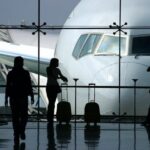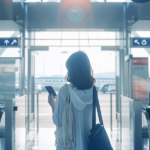In California, a bipartisan legislative effort is underway to regulate the operations of CLEAR, the operator of a biometric expedited screening program for travelers at airports.

The proposed legislation, authored by Democratic State Senator Josh Newman and supported by Republican Senator Janet Nguyen, aims to address concerns about inequality in airport security lines. The bill would require CLEAR to establish its own dedicated security lanes rather than integrating into existing TSA lines, as currently practiced.
Critics of the bill, including major airlines and industry groups, argue that it would result in revenue losses and potentially increase airfare costs. They also contend that it could hurt California’s image as a tourism-friendly state and lead to logistical challenges at airports. Despite these objections, the bill has garnered support from various labor unions, which view CLEAR’s service as an unfair “pay-to-play” system that disadvantages regular travelers.
The bill is facing resistance and its passage remains uncertain, with discussions ongoing among lawmakers. CLEAR, which was founded in 2010 and operates in nine California airports, argues that the proposed changes could have negative repercussions, including job losses. However, proponents of the bill argue that it would ensure fairer access to security processes and maintain the operational viability of CLEAR under new conditions.
The proposed bill has emerged amid CLEAR’s effort to transition its current biometric screening system, which is based on fingerprint and iris scans, to a facial recognition system called “NextGen Identity+”. CLEAR has also been making strides in expanding its screening program beyond airports, applying it to venue access for sports stadiums and other large venues.
Source: Politico
–
April 22, 2024 – by Alex Perala







Follow Us